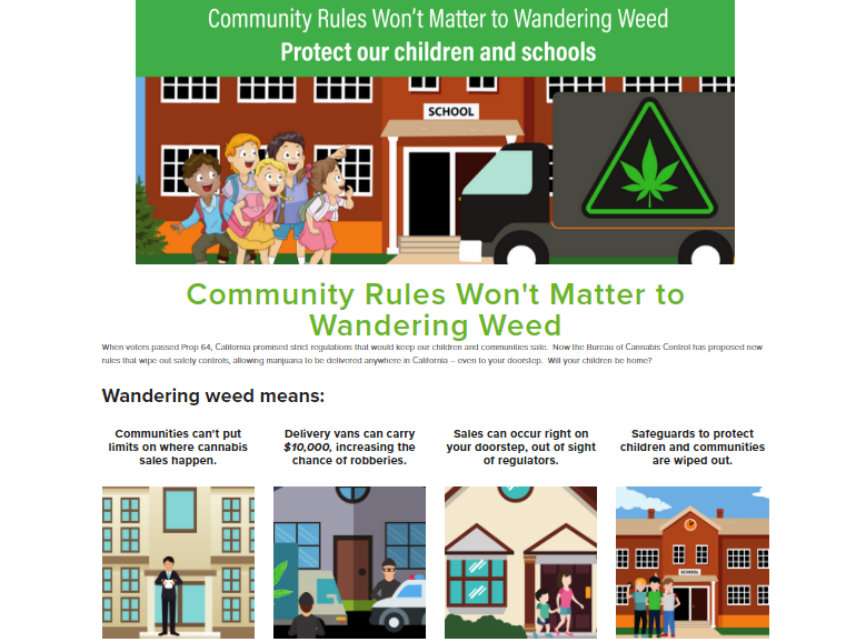California Police Chief Claims Legal Weed Delivery Could Lead to 'Assaults and Homicides'
It's a scare tactic, and an inaccurate one at that.

A proposal under consideration in California would allow marijuana businesses to deliver weed straight to people's doorsteps, even in places where it's illegal to sell pot.
Sounds convenient, right? Not according to Morgan Hill Police Chief David Swing, president of the California Police Chiefs Association (CPCA), who warned the proposal could lead to robberies, assaults, and homicides.
It's been nearly two years since California voters approved a ballot initiative legalizing marijuana for recreational use, and more than eight months since the measure took effect. But marijuana sales are still banned in almost 85 percent of cities and counties in the state, according to Weedmaps. As a result, advocates on both sides are still debating whether or not cannabis retailers should be able to deliver their products to homes in localities where selling pot isn't allowed.
A 2017 state law says "a local jurisdiction shall not prevent transportation of cannabis or cannabis products on public roads" by marijuana retailer licensed to make home deliveries. Alex Traverso, a spokesperson for the California Bureau of Cannabis Control (BCC), tells the Los Angeles Times that the proposal currently being considered would "clarify" that licensed retailers can "deliver to any jurisdiction within the state of California."
In recent days, the BCC has held several public hearings to gauge public opinion on the proposal. Bureau chief Lori Ajax will also consult with Gov. Jerry Brown before making a decision.
Approving the proposal would simply reaffirm the decision California voters made in November 2016, say its supporters. The proposal's detractors say that selling delivering weed to people's doorsteps violates local bans on pot sales. They also claim it will lead to more crime.
"This will make it easier and more lucrative to rob a delivery person than a liquor store," Swing tells the Times, explaining that the proposal would permit delivery drivers to carry as much as $10,000 in cash apiece. "Robberies are the tip of the iceberg. They can lead to other crimes, including aggravated assaults and homicides," Swing adds.
The CPCA is working with the League of California Cities to lobby against the proposal. Their website, StopWanderingWeed.com, emphasizes the need to "protect our children and schools." At the top of the website is an illustration of a group of schoolchildren looking up a truck with a marijuana leaf logo imprinted on it.
Linking marijuana to crime—particularly violent crime—is a common scare tactic. In February 2017, for instance, Attorney General Jeff Sessions expressed concern about the "violence around marijuana." But the evidence doesn't back up those sorts of arguments.
According to a Snopes fact-check, there's "no credible evidence" linking legalization of recreational marijuana to an increase in violent crime. In a piece for Reason last October, Steve Chapman made a similar point:
Studies show that after Colorado permitted recreational pot, there was no increase in adolescent use or traffic fatalities. In Washington, which voted for legalization in 2012, crime rates proceeded to decline. California found that when medical dispensaries closed, neighborhood crime didn't fall; it rose.
Along those same lines, a June 2017 study in The Economic Journal found that legalizing medical marijuana in states bordering Mexico actually led "to a decrease in violent crime," as Mexican drug cartels lost their stranglehold on the weed market.
Allowing California marijuana retailers to make home deliveries statewide will not magically make crime skyrocket. California voters have already made their choice on the matter, and the BCC shouldn't stop consumers from enjoying weed delivered straight to their front doors.


Show Comments (32)